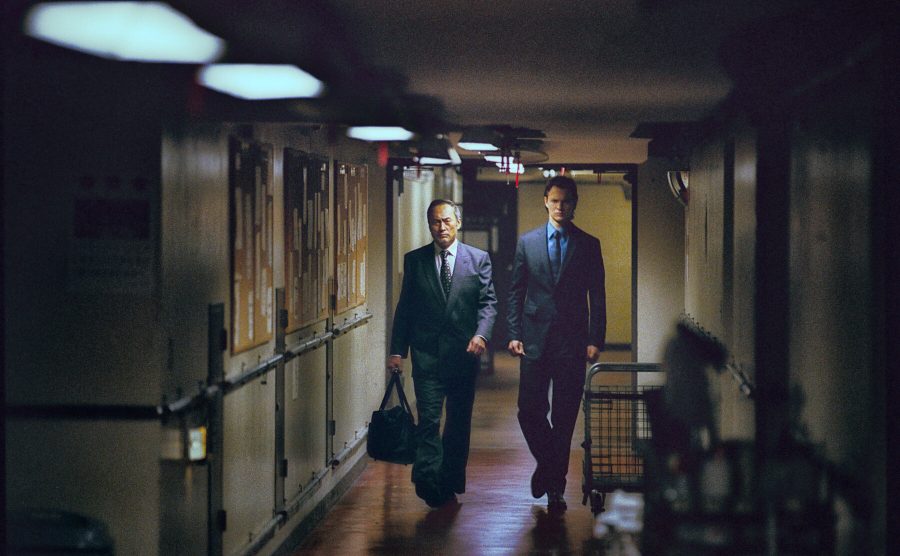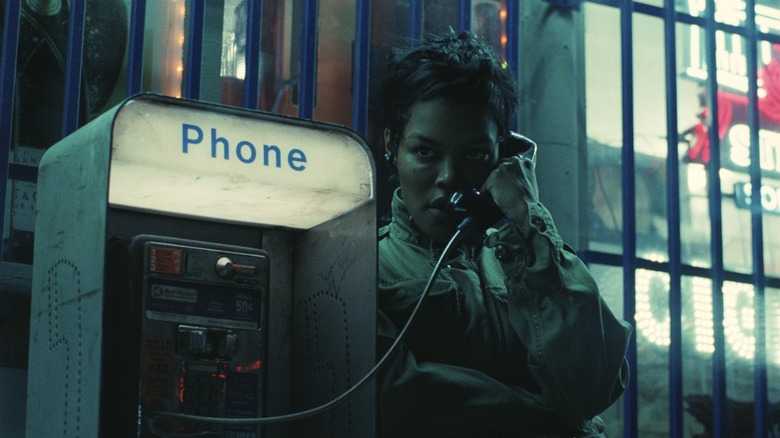“Tokyo Vice” raises the stakes with shifting relationships, surprising backstories, and a potential gang war.
When we last saw reporter Jake Adelstein (Ansel Elgort), he was being forced away from the company of his work friends by some no-nonsense Yakuza members. Luckily, the latest episode reveals that he’s not in any serious danger — at least, not yet. In a closed-door meeting with Chihara-kai gang head Hitoshi Ishida (Shun Sugata), Adelstein learns that his investigative abilities and police connections are valuable in the underworld. He’s given an ultimatum: uncover a mole within the Chihara-kai gang or face Ishida’s cronies. Since his focus remains investigating the predatory loan organization behind a number of recent suicides, Adelstein asks Detective Katagiri to help him fulfill Ishida’s request. At the same time, another cop sows doubt about Katagiri’s motives, leaving Adelstein with second thoughts about who he can trust.
Episode four, titled “I Want It That Way” in reference to Sato’s comical misunderstanding of the hit Backstreet Boys song, is all about shifting relationships. We know who the players are and something of the world they’re in. The question becomes what will happen when they collide, be that in a cooperative, violent, or even romantic way. Sato and Adelstein’s bromance continues to deliver some of the best chemistry in the series. After his meeting with Ishida, Sato drives Adelstein home while the aforementioned Backstreet Boys song plays. The duo laugh over Sato’s strange interpretation of the lyrics and debate NSYNC’s inferiority. Later, they spend a wild night around Tokyo, picking up prostitutes at a high-octane nightclub. They end their romp at a fancy restaurant where Adelstein offers his card to a high-ranking gangster, despite Sato’s warnings. Unfortunately, their opposing occupations make a bromance breakup seem more than likely. Hopefully, such a breakup wouldn’t reduce the amount of screentime for Sato (Shô Kasamatsu). There’s something about Kasamatsu’s facial expressions that makes them feel especially vulnerable. He doesn’t have to say much to take over a scene, making him the perfect foil to the energetic, flighty performance Elgort gives.
Beyond the bromance, Adelstein also makes progress with his editor at the paper, Emi Maruyama (Rinko Kikuchi), convincing her at last that his story is worth pursuing. It’s entertaining to watch Maruyama and Adelstein con their way into valuable information with Maruyama pretending to be desperately broke so she can get eyes on the terms of the predatory loan. We even get a brief mention of her backstory — she can speak Korean and has family from Jinhae. Perhaps more notably, Maruyama illustrates what it’s like to be a female journalist in the corrupt space that Adelstein navigates with relative ease. When she tries to investigate a story about a string of murdered women, she must suffer being sexually harassed by a detective in order to find out more information. It’s a stark contrast to the relaxed family dinners Adelstein shares with Detective Katagiri. Like at the newspaper and within the Yakuza, the police force is another boys’ club that Maruyama and other women struggle against.
Episode five, ominously titled “Everybody Pays,” gives us a peek into Samantha’s past. Before she entertained businessmen and Yakuza at the hostess club, she was… a missionary from Utah? Unexpected as it is, Rachel Keller believably portrays Samantha’s innocent younger self: a dutiful Christian excited to bring the gospel across the globe, and ultimately attracted to the more secular lifestyle she could have in Japan. Unfortunately, Samantha decided to rob the church of around 40 grand in order to set herself up in Tokyo. Her fear of extradition and having to face the church is understandable, but I’ll admit to having a hard time seeing her as justified in this situation. It’s not that the show suggests what she did was right, but the way she is unmotivated to make any reparations for her crime cooled her character to me. I can’t tell if the show wants us to continue rooting for her to get away with the theft. When compared to the Yakuza members’ crimes, she looks better in comparison—but so would almost anyone who isn’t a gangster.
Unfortunately for Samantha, an unscrupulous private investigator is onto her. To make matters worse, her boss at the hostess club is clued in on her plans to start her own place. Facing enemies on multiple fronts, Samantha turns a tense exchange with Sato into a steamy hookup. The show leaves it unclear if she’s truly falling for him, or if she thinks she can get something out of him by playing into his desires. It’s hard to take the idea of reciprocity out of the equation of constant exchange — of information, of lives, and of love. Few actions in Tokyo’s underworld are not quid pro quo. Even Adelstein falls victim to this, deciding to use Ishida’s help to advance his investigation as a reward for exposing the mole within his organization.
Without spoiling who the mole is, the reveal leads to one of two riveting, bloody conflicts between Yakuza members in this week’s episodes. The tensions that began brewing at the beginning of the season are finally boiling over, and it’s not just the Yakuza that are being burned. Adelstein must endure the guilt of one of his sources dying. Samantha must pay a fee to Sato if she hopes to get her club up and running. Katagiri, still impeccably commanding and complex as portrayed by Ken Watanabe, tries to put out the fires he can. Yet, a war between the modern, self-assured Tozawa gang and the struggling-to-adapt Chihara-kan gang seems inevitable; Katagiri’s peacekeeping efforts notwithstanding. Speaking of “peacekeeping,” I found it compelling when Katagiri used violence as a tool to uncover the mole. Yes, he’s operating in a corrupt underworld where the means of violence seem justified by the end of peace, but I can’t help feeling that he’s going to make himself no more respectable than the gangsters. I don’t think he’s quite crossed the horizon yet, but he’s toeing the line of immorality. His character faces an interesting dilemma: is it more ethical to maintain the status quo by unsavory methods or to allow things to go to hell and try to lawfully manage the aftermath?
Episode five ends on a bloody note. The show might have crawled its way to a genre-worthy fight scene, but the payoff is worth it. There are swords, hand-to-hand combat, and even what appears to be a familiar face from the “Meicho Shimbun” in the middle of the mess. After such a revved-up climax, it’s hard to believe there are only three episodes left in the first season. Will that be a sufficient amount of time to continue escalating — and perhaps finally resolving — the story’s many threads? We can only hope so. Otherwise, “Tokyo Vice” had better be renewed for a second season, or risk leaving too many questions unanswered.
Grade: A
Created by: J.T. Rogers
Starring: Ansel Elgort, Ken Watanabe, Rachel Keller
Release date: April 14, 2022
Rated: TV-MA
Image courtesy of New York Times
TV Recap: “Tokyo Vice” – Episodes 4-5
Apr 24, 2022
0
About the Contributor

Bailey Bujnosek, Senior Staff Writer
Bailey is a fourth-year English literature and psychology double-major who watches too much reality tv. She likes listening to Mitski, Ricky Montgomery, & Fiona Apple. Her favorite movie is “Whiplash,” the “Black Swan” of jazz drumming.
More to Discover









